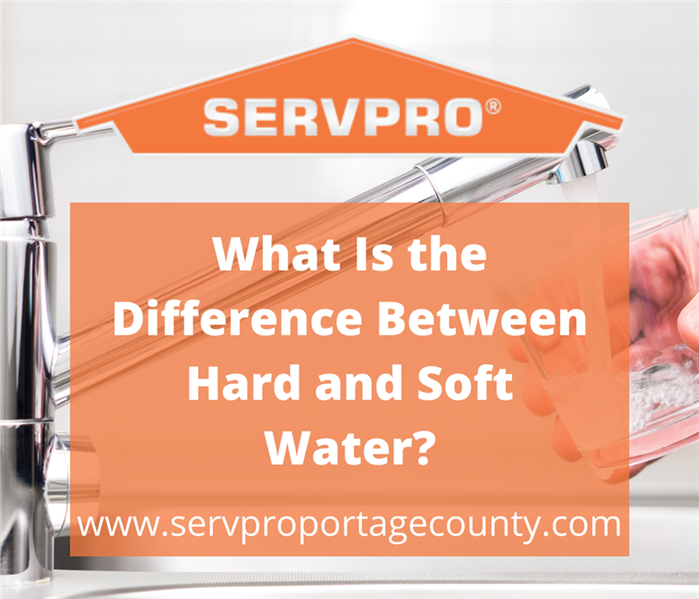What Is the Difference Between Hard and Soft Water?
9/6/2021 (Permalink)
Water makes a big difference to your home and lifestyle – whether you are in a hard or soft water area is important to know.
What is the difference? Unless you only drink distilled water, all water has traces of other minerals in it depending on where it has been sourced from.
Hard water simply has higher and more noticeable quantities of dissolved minerals in it, mainly calcium from areas with lots of limestone in the ground. Soft water has low levels of other minerals and is closer to being just H2O.
(Do not confuse hard water with heavy water….that is a slightly different molecular makeup of water used in nuclear reactors and not in your home.)
Rainfall is naturally soft water, but as it soaks into the ground it picks up minerals from the rocks and earth before finding its way into our water supplies.
There is nothing inherently wrong with either type – both are fine to drink. Hard water can even be sought after for the extra mineral content as good for bones, and some say they prefer the flavor. Soft water can have a salty edge, especially if it is soft because it has been run through a household softener that uses sodium.
But hard water does have its drawbacks – the minerals in it reduce the effectiveness of soaps and detergents, creating fewer bubbles and leaving a film or soap scum behind, or dulling laundry.
And when hard water is heated in appliances like washing machines, water heaters, and kettles, the minerals come out of the solution and solidify as white chalky flakes. Again, these are harmless to humans – but not your appliances. The residue – effectively small pieces of limestone – will make your equipment less energy-efficient and shorten its useful life as the limescale builds up over time.





 24/7 Emergency Service
24/7 Emergency Service
